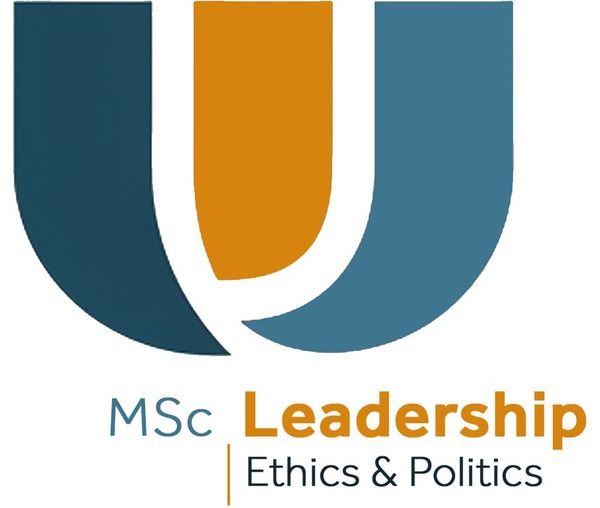Leadership in Corporate Strategic Management and Project Implementation (LEPC2)
Ευάγγελος Πρωτοπαπαδάκης
Syllabus
Course Syllabus
I. Characteristics and forms of leadership
II. Power and politics - Conflict and negotiation
III. Organizational structure and culture
IV. Introduction to Organizational Behavior
V. Personality and values, Perception and Individual decision making
VI. Organizational change and stress management
VII. Motivation: Theories and Applications
VIII. Group behavior and work teams
IX. Communication management
X. Framework of theory and analysis of business performance management
XI. Framework and applications of business intelligence - Business Intelligence
Course Objectives/Goals
• Demonstration of critical knowledge of the basic principles of organizational behavior
• Analysis of principles influencing behavior in the business environment.
• Critical understanding regarding the measurement of job satisfaction and job satisfaction factors
• Differentiation between perception and decision-making and common decision-making biases or errors
• Exploration of how individual differences and organizational constraints affect decision-making.
• Critical assessment of the impact of emotions and attitudes, as well as the value of emotional intelligence in corporate performance.
• Understanding concepts related to emotions and attitudes on specific topics of Organizational Behavior
• Determination of the effects of employee commitment on management
• Analysis of strengths and weaknesses in group (versus individual) decision-making
• Understanding the functions of communication processes in organizations
• Perception of theories about the main constraints of leadership behavioral theories
• Exploration of how organizations can select and develop effective leaders
• Critical understanding of common characteristics of organizational culture and basic approaches to change management
• Awareness of the implications of framework and structure on the direction of "Business Intelligence" in companies and organizations
Instructional Methods
This course employs a dynamic blend of instructional methods to ensure a comprehensive learning experience. With a focus on engagement and flexibility, the instructional approach comprises 75% face-to-face teaching, fostering direct interaction between instructors and students in a traditional classroom setting. Additionally, 25% of the course involves distant teaching, which can be delivered either synchronously or asynchronously. This remote component allows students to access course materials, participate in discussions, and engage with learning activities at their own pace, leveraging online platforms and resources. By combining face-to-face interaction with remote learning opportunities, the course aims to cater to diverse learning styles and preferences, facilitating deeper understanding and collaboration among students while accommodating individual schedules and needs.
Assessment Methods
- 20%: Participation
- 20%: Oral presentation
- 60%: Written assignment
Prerequisites/Prior Knowledge
This module has no prerequisites in the curriculum or prior knowledge requirements.
Instructors
Instructors for the course will be announced shortly.
Textbooks
To be added soon.
Bibliography
- Dimitriou D., Sartzetaki M., Karagkouni A., (2024)., Managing Airport Corporate Performance: Leveraging Business Intelligence and Sustainable Transition, ISBN: 9780443291098, Elsevier.
- Ferrell O.C., Hirt A., Ferrell L. (2018). M: Business. 6th Edition. February 5, 2018. ISBN-13: 978-1259929458., McGraw Hill
- Gamble J., Peteraf M., Thompson A. (2023). Essentials of strategic management, The Quest for Competitive Advantage. 8th Edition. ISBN 978-1-264-12433-6, Mc Graw Hill
- Ronald J. Ebert Ricky W. Griffin (2022). Βusiness Essentials. 13th Edition, ISBN 9780136862680, PEARSON.
I. Characteristics and forms of leadership
II. Power and politics - Conflict and negotiation
III. Organizational structure and culture
IV. Introduction to Organizational Behavior
V. Personality and values, Perception and Individual decision making
VI. Organizational change and stress management
VII. Motivation: Theories and Applications
VIII. Group behavior and work teams
IX. Communication management
X. Framework of theory and analysis of business performance management
XI. Framework and applications of business intelligence - Business Intelligence
• Demonstration of critical knowledge of the basic principles of organizational behavior
• Analysis of principles influencing behavior in the business environment.
• Critical understanding regarding the measurement of job satisfaction and job satisfaction factors
• Differentiation between perception and decision-making and common decision-making biases or errors
• Exploration of how individual differences and organizational constraints affect decision-making.
• Critical assessment of the impact of emotions and attitudes, as well as the value of emotional intelligence in corporate performance.
• Understanding concepts related to emotions and attitudes on specific topics of Organizational Behavior
• Determination of the effects of employee commitment on management
• Analysis of strengths and weaknesses in group (versus individual) decision-making
• Understanding the functions of communication processes in organizations
• Perception of theories about the main constraints of leadership behavioral theories
• Exploration of how organizations can select and develop effective leaders
• Critical understanding of common characteristics of organizational culture and basic approaches to change management
• Awareness of the implications of framework and structure on the direction of "Business Intelligence" in companies and organizations
This course employs a dynamic blend of instructional methods to ensure a comprehensive learning experience. With a focus on engagement and flexibility, the instructional approach comprises 75% face-to-face teaching, fostering direct interaction between instructors and students in a traditional classroom setting. Additionally, 25% of the course involves distant teaching, which can be delivered either synchronously or asynchronously. This remote component allows students to access course materials, participate in discussions, and engage with learning activities at their own pace, leveraging online platforms and resources. By combining face-to-face interaction with remote learning opportunities, the course aims to cater to diverse learning styles and preferences, facilitating deeper understanding and collaboration among students while accommodating individual schedules and needs.
- 20%: Participation
- 20%: Oral presentation
- 60%: Written assignment
This module has no prerequisites in the curriculum or prior knowledge requirements.
Instructors for the course will be announced shortly.
To be added soon.
- Dimitriou D., Sartzetaki M., Karagkouni A., (2024)., Managing Airport Corporate Performance: Leveraging Business Intelligence and Sustainable Transition, ISBN: 9780443291098, Elsevier.
- Ferrell O.C., Hirt A., Ferrell L. (2018). M: Business. 6th Edition. February 5, 2018. ISBN-13: 978-1259929458., McGraw Hill
- Gamble J., Peteraf M., Thompson A. (2023). Essentials of strategic management, The Quest for Competitive Advantage. 8th Edition. ISBN 978-1-264-12433-6, Mc Graw Hill
- Ronald J. Ebert Ricky W. Griffin (2022). Βusiness Essentials. 13th Edition, ISBN 9780136862680, PEARSON.
Calendar
Announcements
- - There are no announcements -

